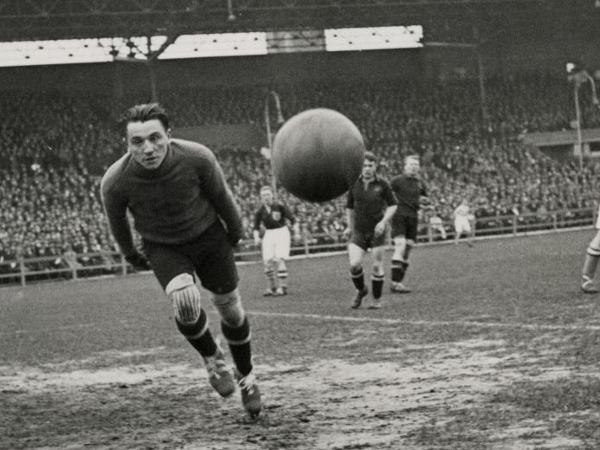The 1994 FIFA World Cup in the USA will forever be etched in the memories of fans of the game around the world for its movie-like plot.
Heroes became villains, villains became heroes and one very unfortunate error resulted in the murder of one of the story’s main protagonists, Colombian defender Andres Escobar.
Escobar was a hero in Colombia, a country that was in the middle of a bloody war against drug lords who had all but taken control of the South American nation.
However, an unlucky own goal scored by the Atletico Nacional player in a group stage match against the United States meant a 2-1 loss and the highly fancied Colombians were sent packing much earlier than expected.
It was a fatal mistake.
Upon returning to his home city of Medellín, he was shot twelve times outside a nightclub by a man who reportedly screamed “Gól!” with each gunshot at Escobar’s body.
The man found guilty of his murder, Humberto Castro Munoz, was a bodyguard for a violent drug cartel of which allegedly bet massive amounts of money on the Colombian team.
Such was the significance of the death of Escobar, the brilliance of Brazil claiming their fourth crown, the surprising semi-final run of the Bulgarians and Roberto Baggio’s missed penalty in the final almost became side plots.
The main story was that dangerous external forces that were rampant around club football had finally made their mark on the biggest stage of all, the World Cup.
There was a realisation that football, ‘the world game’, was not immune to the world’s problems; the sport reflected society through good and bad.
Although not an example of match fixing, the Escobar story shows the influence of criminal gangs in football circles, which continues today.
Football is an easy target in the age of Internet betting, whilst criminal gangs and even the economic downturn have contributed to modern corruption and match-fixing.
In February this year, Europol announced that 380 matches of football, including World Cup and EURO qualifiers had been fixed, whilst investigators say that 450 match officials, players, club officials and criminals from 15 countries were involved in match fixing activity since 2008.
Former Croatian footballer Mario Cizmek was convicted of rigging games in 2010, and told the Associated Press of the “unwritten rules” of match-fixing.
Cizmek’s story is both alarming and disturbing, and shows the dark cloud that lingers over football.
Just last week, eight Estonian footballers were banned for just a year each by FIFA for match manipulation and fraud.
Which begs the question; are footballing authorities doing enough to stop corruption?
Are the penalties being dished out harsh enough?
Leading European football journalist Aleksandar Holiga says that corruption is rife on the continent, and there is no real sign of it ending any time soon.
“It’s definitely a very real problem, at least in some countries and leagues…cases of both match-fixing and corruption have been happening in many countries and they continue to happen.”
The biggest problem of all for the sport is that the criminals and betting syndicates have set up an extensive ‘web’ of people who delve into illegal activity, however no matter how many are caught; it’s always likely that the “big fish” will get away.
“I can’t really name any names before they have been processed by the legal system, but there are many stories about how the betting syndicates, or at least most of them, are all linked in one worldwide cobweb of corruption.
“Many have suggested that this mafia are certain Asia-based characters.”
Although certainly not alone, many Eastern European countries have been rocked by findings of match-fixing, with their being more cases of corruption than any other part of Europe.
Why is the area so vulnerable, though?
“It’s quite easy to explain”, says Holiga.
“If a teacher or a policemen is struggling to make a living because he’s paid meagre wages, that will only make him more susceptible to corruption than his colleague in some other country who receives a decent salary for his work.
“It’s the same with football, particularly in smaller, poorer countries where clubs aren’t really sustainable in professional football or ambition of their leaders drive them to try to operate well above their means.”
He uses his native Croatia as an example.
“In Croatia, many top-tier clubs don’t pay wages regularly to their players and staff and that’s a big opportunity for shady characters to approach them and offer to make them some money on the side.”
It wouldn’t be right to say that shady characters only exist outside of the sport itself, there are also those have either infiltrated or become influenced by these people whilst in positions of power.
Holiga says that there are corrupt individuals within the HNS (Croatian Football Association), clubs and referee organisation, but very rarely is anything ever done about it.
“The key men in Croatian football have no interest in dealing with these issues, because it would affect them the most.
“Full engagement from the government is needed and you probably know that FIFA does not condone politics interfering with football, but some steps have been made and I expect the results to emerge soon.”
The problems Croatian football faces are ones that are also faced by many other countries across Europe, Africa, Asia and South America.
Unless football authorities such as FIFA and UEFA attempt to properly tackle corruption head on, the struggle to maintain the integrity of “the beautiful game” will continue.
Daniel Baricevic is a third-year Bachelor of Journalism (Sport) student at La Trobe University. You can follow him on Twitter: @danielbara4







